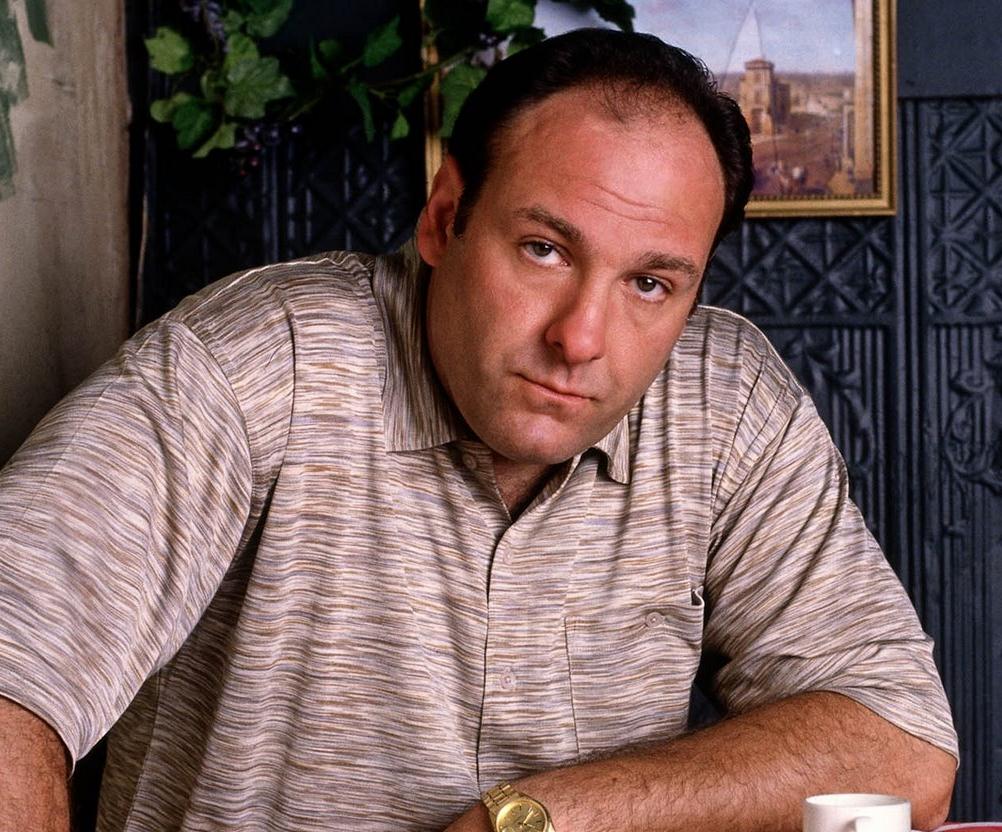
The word ‘everyman’ has been used a lot to describe James Gandolfini’s portrayal of mob boss Tony Soprano, particularly in the hours since the actor’s death Wednesday night in Rome. Physical descriptions – ‘balding’, ‘overweight’ – pop up in attempt to explain his accessibility, how what he did spoke to so many people. But there are legions of fat, balding actors who couldn’t hold a candle to Gandolfini and dozens of more conventionally-styled leading men who might have taken an admirable run at his defining role but ultimately ended up looking like soulless hacks in comparison. As great a show as The Sopranos is on so many levels, there’s only one inextricable piece. Without Gandolfini the whole thing comes crashing down.
I’ve watched The Sopranos so much, particularly in the six years since the final episode, that entire chunks are lodged in my subconscious. While picking up groceries or out for a run my mind will inevitably drift to a Tony-line. It’s usually the more mundane, seemingly throwaway ones too – ‘the hell with heating it up, it’s good like this‘ when Carmela offers to microwave a bowl of cold pasta for him. “Ah – a roller ball,” unmoved upon receiving the pen as a gift from Ginny Sac’s brother, the ‘Lord of the Lenses.’ This character was no ‘everyman’ but in fact an exceptionally violent mafioso with a huge appetite for food, sex and ego gratification. As expressed by Gandolfini, Tony Soprano was equally compelling in his bathrobe, holding a carton of with-pulp orange juice while standing in his driveway. David Chase has commented on the expressive powers of Gandolfini’s sad eyes but his breathing, hunched movement, large, fat fingers and powerful, borderline nasal voice were all solid, too. Everything about the guy was solid. There might not be a more appropriate word to describe him.
There was complexity to Tony Soprano’s potent appeal. Cinematic violence is so commonplace that its often rendered ineffective. Gandolfini had no such problem. His violent scenes were so real that the catharsis of the act seemed to evolve quickly into something that left him spent and that had the same impact on the viewer. Watching him curb-stomp Coco Cogliano, put a football helmet through the windshield of AJ’s SUV, or put his fist through the wall while fighting with Carmela, it was difficult to imagine much levity on the set when the director yelled “cut.” But violence was just a small part of his range on the show. Gandolfini could do boredom like nobody else. He was the Houdini of Irritation, the Van Gogh of genuine sentiment. This begs another point: some have suggested that he was merely playing himself; that so much of his New Jersey, Italian-American upbringing was Tony Soprano. That it wasn’t acting. No doubt this was the role of a lifetime and one he was made to play. But this overlooks the much larger point that he both won and nailed this part. Every successful actor peaks, declines and eventually dies. Given the quality and duration of the production, hour for hour he had more effective screen-time than DeNiro. He wasn’t simply playing himself and anyone questioning his acting ability need only watch the quieter moments with his family or even his ailing racehorse. Actors talk about how to deliver a line but it was in silence that Gandolfini was often most effective. His facial expressions could make a scene without him saying a word.
I’ve watched the Sopranos enough to know that it can’t be narrowed down to a favorite episode or handful of scenes. There were over eighty installments and I’ve never tired of watching them repeatedly. Draw from this whatever conclusions that you will. There are two non-verbal Tony Soprano moments running through my head as I type this. One is an episode where he’s rejected by his shrink for endangering her life and practice and then returns home to his wife in the middle of the day. She’s surprised to see him and they sit together at the dining room table – she opening the mail and he again eating leftover pasta – without saying a word. The other is an episode where he walks into his mother’s house to find Richie Aprile dead on the kitchen floor where his sister Janice has shot him. He rubs his mouth momentarily, taking in the scene, and his expression – over in a split second – is priceless. I won’t attempt to convey what’s being said with either look but would suggest that there aren’t many actors who could pull it off. David Chase deserves every bit of credit for conceiving, creating, and writing the best television show in modern history but it was James Gandolfini who embodied the deal and put it over the top. He will be missed but Tony Soprano lives forever.

Post a Comment